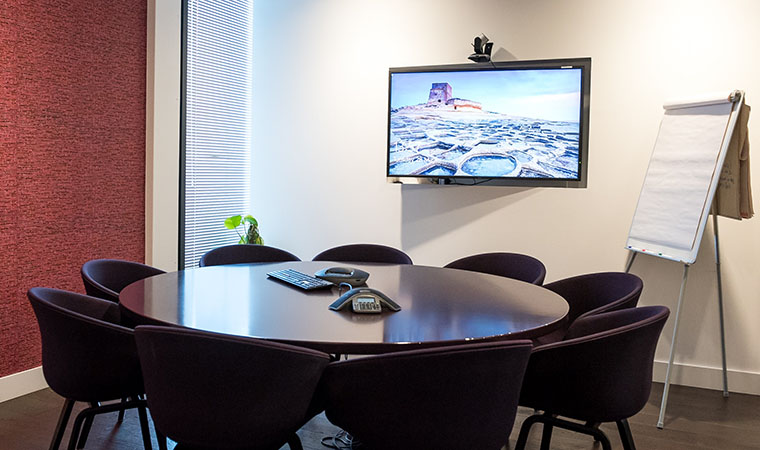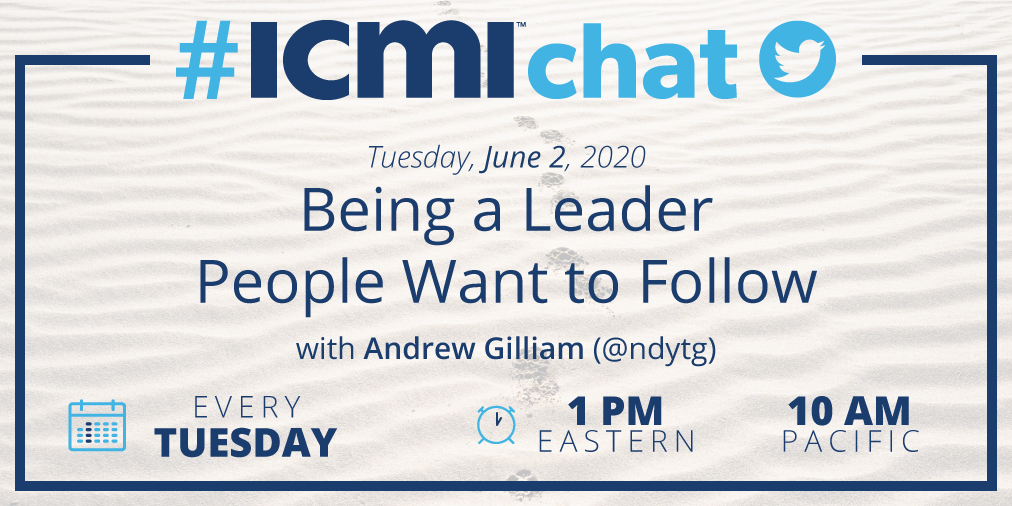By
The Editors
|
Date Published: May 27, 2020 - Last Updated September 08, 2020
|
Comments

Even in the unlikeliest of times, contact centers always need a steady flow of fresh talent. Recruitment, selection, and onboarding are some of the most critical functions of a contact center manager. It is vital to select people with the right skills, abilities, and attitudes to fit our team. Our culture must be passed on and strengthened with each new cohort of agents.
Join us on Tuesdays at 1 p.m. Eastern, 10 a.m. Pacific to weigh in on the contact center industry's most pressing challenges. Next week, we explore "Being a Leader People Want to Follow." A question preview follows this article.
It's never an easy process for both hiring managers and candidates alike. Interviews are uncomfortable and nerve-racking. They both wonder if they're making the right decision, and we never really know the answer until long after decisions are made. This week, #ICMIchat shared tips to make hiring from afar as productive and enjoyable as possible.
Interview Impressions Last
Candidates' interview experiences long outlive the selection process; they even outlast the job! In today's connected age, interviewees can share their experiences with the whole world. Our community had no trouble recalling what makes interviews great, and they also shared a few thoughts about what makes interviews bad. Employers need to manage their candidate-facing brand and provide experiences that are comfortable, insightful and inspire confidence in the company. Positive experiences start with a conversation, not a game or an interrogation.
It was candid. Neither party felt like it was a negotiation or a chore. Both parties learnt something interesting at the end of the process.
They asked open-ended questions about my life and asked for my opinion on hypothetical struggles.
Hiring Right Now
More than usual, hiring practices are being shaped by current events. Employers have been forced to embrace working in ways they never imagined. Record unemployment caused a surge in available talent. Social distancing stifled our ability to connect in person. These challenges also bring exciting possibilities. Employers who embrace remote work aren't limited to their local talent pool. Interviews no longer require navigating a new environment. Those who embrace these challenges can overcome them better than ever before.
Well, social distancing is part of 2020's great economic turmoil, so it may be easier to recruit great, talented people who've lost their jobs. Grim, but true. Besides, much of recruiting has been done (partially) virtually for the last decade.
Educated guess from my days in recruiting: 1) Attracting candidates is easier with record unemployment. 2) Screening is harder (so many). 3) Social distancing probably forces better habits. Ex: Why an in-person interview for a phone job?
Social Distancing doesn’t make it harder to hire talent, just different. Once hiring managers realize the talent pool from which they can hire is much greater If they can attract and retain remote workers, social distancing isn’t even a factor at all.
Familiar but Different
Like employers, job applicants also face unusual challenges as we all remodel our hiring and selection processes. The challenge of finding parking is replaced by a mic check. Timeliness depends more on setting children and pets up with a quiet source of entertainment. Wearing the right shoes has never been of less concern. If you're hiring now, keep in mind that candidates are also experiencing dramatic changes in the way they search for work.
Remote interviews & selection is the new normal. Candidate unique challenges: Investment in good camera/audio equip (quality does matter). Get access to broadband functionality at home or a good, quiet location. Take the online hiring process seriously.
Remote interviews “flatten” the experience for everyone. Body language is hard to read. Jokes don’t make it through due to bad connections (pun intended!). Candidness is not the same as before. Competition is much higher now!
Conducting Great Interviews
Interviewers and hiring managers should also consider their behaviors in the interview process. Technical glitches and delays will happen unexpectedly. Delays in the conversation might have to do with connection speed rather than an inability to answer. Candidates might need more time to ask questions, as answers aren't found in the context of your physical workplace anymore.
I've learnt the hard way that pausing is very important when waiting for a reaction from the other side. It could just be a bad internet connection!
When hiring remote employees, managers should ask others in the organization to give input. Panel interviews help. Having multiple ways of interacting helps too. Ask for written communication, recorded voice/video, or invite potential employees to join a team chat.
Establishing Trust
Some employers struggle to trust their employees during the best of times, and many are struggling to loosen their grip now that employees are not under careful watch. Establishing mutual trust between employers and candidates is vital to successful working relationships, but it's hard to know who to trust when hiring new employees. Give candidates opportunities to build this rapport with your team, and go into the relationship with an open mind.
This problem exists in regular interviewing too. We don’t trust someone across the table. It takes time. We give it one chance or one project at a time. It’s the same for someone remote. You just don’t see them everyday sitting next to you.
Trust implicitly and know your metrics. If you monitor the right ones fairly, you will know everything you need to.
Agree on jobs to be done with soft deadlines. Look for consistency in the beginning and build trust. Once a pace is set, drive quality.
Setting Expectations
The hiring and onboarding process is an employer's opportunity to set expectations for the relationship. These phases of talent management are vital; be clear and thoughtful throughout the process. Also, try to give candidates realistic previews of what to expect from the job. It's just as important for applicants to have a clear picture of the work as it is for employers to understand the candidate clearly.
New hires often leave because the work isn't what was expected. Assigning remote team members who are good at their jobs to reach out and connect with new hires helps. New employees then feel they have a friend to ask when questions come up, and they always will.
One of the difficulties with working from home is not being able to physically see staff everyday to pick up on nonverbal communication. Staff are reluctant to come to management when they are struggling. Checking in with staff more consistently is important.
Showcasing Your Culture
Hiring employees who may never set foot in your office doesn't relieve our obligation to hire employees who appreciate and embrace the organizational culture. Start by knowing what your culture is and then lead by example. Talk about your culture in terms of expected behaviors during the selection process.
Sharing your culture starts with knowing your culture. Has your team written it down? While remote & WFH, we must be more deliberate than ever before. Lead your team in discussing what's important.
Write it. Live it. Rewrite it. Live it again. More than just writing it, we have to define actions that reinforce the company's cultural values. People can be told "we care" but if they don't know how to "care" they won't foster the values.
This is tough unless the company had a great in-person culture to start with. Else, the new hires can be overwhelmed by either too much communication or embarrassed by "too open a culture" to compensate for the lack of one in the first place.
One Size Doesn't Fit All
It's becoming apparent that working from home was the best thing that ever happened to some employees while being the worst thing that happened to others. Some are still in shock. External events and obligations are pressuring many employees. Not every personality is suited to physical isolation. When it comes time to move some employees back to the office, keep individuals' psychological needs in mind.
Attrition and turnover can be reduced during social distancing especially if people who like to work remotely are allowed to continue to do so. But people who thrive in the office with personal interactions will be able to return and have fewer people around. Win-win!
That is great point. What is going to be interesting is how will new hires handle going into the office when WFH is over. This might be a culture shock for them. I think some employees will strive and some will struggle due to the culture.
Transparency & Moderation
When asked about the top things our community would change about the hiring process, transparency and communication topped the list. Regardless of how the selection is conducted, candidates like to know where they stand in the process. Virtual interviews don't excuse proper etiquette for keeping applicants apprised of their progress. Lastly, respect their time and consider the meeting fatigue that may be overwhelming for some candidates' calendars.
Save the Zoom for the last couple of rounds. Remote workers are already struggling with zoom fatigue. Maybe telephone works for the first couple of rounds?
1. Easier ways to find the right job
2. Transparency in every step
3. More Glassdoor style information so that people first companies get in front of more candidates
#ICMIchat June 2, 2020
Being a Leader People Want to Follow

Q1: What is the difference between leading and managing? Do teams need both?
Q2: Are there downfalls to a strictly “management” type of approach? What are they?
Q3: What roles do approachability, communication, and transparency play in successfully leading a team?
Q4: What is the best way for leaders to build rapport and respect with their teams?
Q5: Is Management By Wondering Around (MBWA) a good approach; do you use it? What is the equivalent of MBWA for remote/work from home teams?
Q6: What is servant leadership?
Q7: What is a practical, everyday example of how leaders can adopt a service mindset?
Q8: Must leaders have position power, de jure authority? How can emerging leaders lead from the bottom?
Photo by Arlington Research from Unsplash.